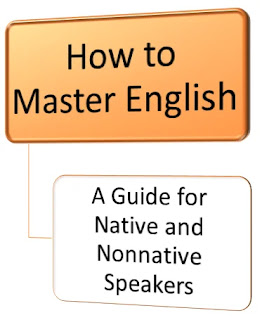How to Master English: A Guide for Native and Nonnative Speakers
English is the most popular language in the world. But do you know how to use it effectively? Whether you learn English as a child or as an adult, you need to know the different ways English can serve you in different situations. In this grammar lesson, you’ll discover the secrets of using English as a native, second, or foreign language.
What’s the Difference Between Native, Second, and Foreign Language?
A native language is the one you learn when you are a young child, usually from your parents or caregivers. A second language is the one you learn later in life, usually for a specific purpose, such as education, work, or communication. A foreign language is the one you learn for international communication, but not for everyday use in your country.
How to Use English as a Native Language
If English is your native language, you probably use it mainly for intranational purposes, meaning to communicate with other people in your country. You may also use it for international purposes, such as travel, business, or entertainment. However, you may not be aware of some of the features that make your English unique and different from other varieties of English. For example:
- You may use slang words or expressions that are not understood by nonnative speakers.
- You may use idioms or metaphors that are specific to your culture or region.
- You may use spelling or punctuation rules that are different from other standards of English.
To use English effectively as a native speaker, you need to be aware of these differences and adapt your language according to your audience and purpose. You also need to keep learning new words and expressions that enrich your vocabulary and make your language more precise and expressive.
How to Use English as a Second Language
If English is your second language, you probably use it for both intranational and international purposes. You may use it for formal education, government administration, law courts, interpersonal communication, commerce, science and technology, or creative writing. Depending on your context and goals, you may need to use different functions of English. For example:
- You may use instrumental function to learn new information or skills.
- You may use regulative function to control or influence other people’s behavior.
- You may use communicative function to share your thoughts and feelings with others.
- You may use occupational function to perform your professional duties or tasks.
- You may use creative function to express your imagination or opinions in nontechnical writings.
To use English effectively as a second language speaker, you need to master these functions and choose the appropriate one for each situation. You also need to be aware of the variety of English that you are using and how it differs from other varieties. For example:
- You may use American English, British English, Australian English, or another regional variety of English.
- You may use standard English, informal English, academic English, or another style of English.
- You may use features that are characteristic of your second-language variety, such as rhetorical or stylistic devices.
To use English effectively as a second language speaker, you need to be flexible and adaptable in your language choices and adjust them according to your audience and purpose. You also need to keep improving your grammar, vocabulary, pronunciation, and fluency skills that make your language more accurate and natural.
How to Use English as a Foreign Language
If English is your foreign language, you probably use it mainly for international communication. You may use it for travel, business, education, entertainment, or personal interest. However, you may not have many opportunities to practice it in real-life situations. You may also face some challenges when using it with native or nonnative speakers. For example:
- You may have difficulty understanding different accents or dialects of English.
- You may have difficulty expressing yourself clearly or politely in English.
- You may have difficulty following the cultural norms or etiquette of English-speaking countries.
To use English effectively as a foreign language speaker, you need to overcome these challenges and develop your confidence and competence in using English. You also need to find ways to expose yourself to authentic and diverse sources of English. For example:
- You may watch movies or TV shows in English with subtitles.
- You may read books or articles in English with a dictionary.
- You may listen to podcasts or music in English with lyrics.
- You may join online communities or forums where people speak English.
- You may take online courses or lessons in English with a teacher.
To use English effectively as a foreign language speaker, you need to be curious and motivated in learning new things about English and its culture. You also need to keep practising your listening, speaking, reading, and writing skills that make your language more proficient and fluent.






COMMENTS